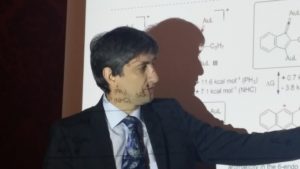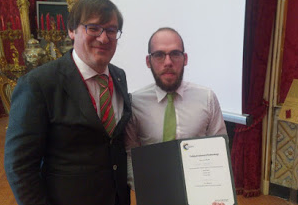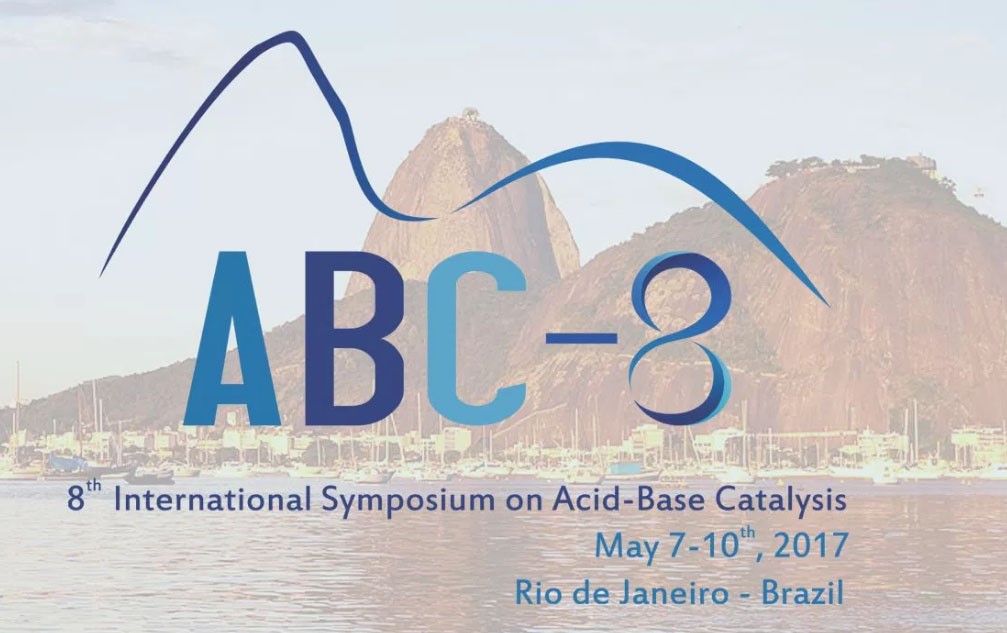This article was written by Mario Pagliaro
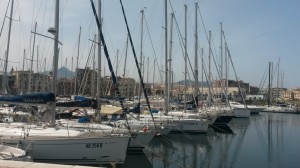
Palermo Bay
Inaugurated by a welcome address of Professor Giulio Deganello, founder in the early 1990s of Palermo’s chemistry Institute of Italy’s CNR, the 5th edition of the “FineCat Symposium on heterogeneous catalysis for fine chemicals” was held in Palermo on April 6-7 in the splendid Sala delle Capriate of the Steri Palace, featuring the invited lectures of Valentine Ananikov and Bert Sels.
The presence of delegates from Norway, Russia, Belgium, Switzerland, UK and Italy testified once again to the international nature of this yearly Symposium series inaugurated in 2012 following the Catalysis Science & Technology themed issue1 on the same topic.
Professor Valentine P. Ananikov, Russian Academy of Sciences, Moscow, discussed heterogeneous catalysis in the eyes of an organic chemist. His lecture started from insight of Russia’s chemist Balandin who in his last article2 published in 1969 was calling for a single theory of catalysis, capable to anticipate catalytic effects.
With the advent of today’s sophisticated and powerful analytical techniques as well as in light of recent progress in chemical theory, such approach merging molecular, metal, bio, and photo homogeneous and heterogeneous catalysis is eventually becoming a reality.
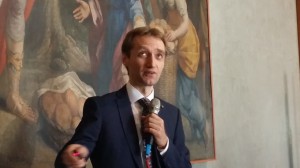
Professor Valentine P. Ananikov, Russian Academy of Sciences, speaking at FineCat 2016
Recent work from Ananikov’s Group, for example, has shown that homogeneous metal-catalysed reactions are in fact due to “cocktail-like” systems,3 namely to participation of different metal species in the catalytic transformation; whereas heterogeneous catalysis often involves formation of a number of active species that possess dynamic properties and interconversions on the surface.4
In his lecture, academician Ananikov also discussed strategies to reducing the cost of metal catalysts, devising leach-proof synthetic strategies and using easily available metals such as nickel,5 the “spirited horse” identified by Sabatier in his seminal 1922 book on catalysis and organic chemistry.6
Professor Bert Sels, Director of the Center for Surface Chemistry and Catalysis at Katholieke Universiteit Leuven, Belgium, discussed how Sn tetrahedrally incorporated into porous silica frameworks such as zeolites and structured mesoporous silica can be successfully used as heterogeneous Lewis acid catalysts.7
A remarkable example is the conversion of carbohydrates into platform and commodity chemicals such as lactic acid or alkyl lactates, building blocks of PLA, where the activity and selectivity of Sn-based materials largely surpasses those of homogeneous Sn catalysts.8 Some of the materials developed by his Group show water-tolerant behaviour and can therefore be used in aqueous conditions.
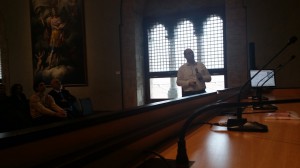
Professor Bert Sels, Director of the Center for Surface Chemistry and Catalysis at Katholieke Universiteit Leuven, speaking at FineCat 2016
Another discovery of great practical relevance in the context of the emerging biorefinery, is the simple method to convert wood in one pot and directly into carbohydrate-rich pulp and lignin oil rich in valued phenolics via hydrogenolysis of lignocellulose in methanol over a simple Ru/C catalyst.9 Biomass conversion, he concluded, is an exciting research area with a vast unexplored terrain. New catalysts and new synthetic routes are awaiting to be designed, guided by fundamental knowledge with regard to active sites and insight in the reaction mechanisms.
Jan Schütz, DSM Nutritional Products, Basel, showed how basic ion exchange resins containing quaternary ammonium groups are used at one of the world’s leading fine chemicals company to mediate aldol condensation reactions of various aldehydes and ketones. One example of manufactured products is timberone, which has a woody, amberlike odor and is valued in the fragrance industry for manufacturing perfumes and cosmetics, obtained from citral and 2-pentanone.10 The anionic resins are ideally used in continuous reaction mode thus likely anticipating similar progress in the fine chemicals industry with solid-supported metal complexes and metal nanoparticles.
Professor Cristina Della Pina, Department of Chemistry, University of Milan, discussed the novel use of nanoferrites as catalysts (and fillers) for polyaniline (PANI) composites preparation. Her team recently reported a new method to produce electrical and magnetic polyaniline/ferrite nanocomposites, whereby the magnetic nanoparticles played the dual role of catalyst and magnetic filler.
Piera Demma Carà, post-doc research assistant at the MicroBioRefinery of the University of Liverpool, presented the one-pot conversion of cellobiose, a model compound for polysaccharides, into sugar alcohols over ruthenium-based bifunctional catalysts. Ru nanoparticles impregnated on Amberlyst 15 are very active and selective towards sorbitol under 40 bar hydrogen in water, affording in 5 h a >80% yield of sorbitol, much higher than the 53% yield obtained using a mixture of the solid acid A15 and Ru/C.
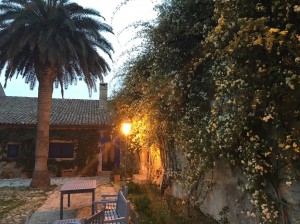
Regaleali villa
Ludivine van den Biggelar, PhD student at the Université Catholique de Louvain, Belgium, discussed the successful use of silica-supported transaminases in continuous flow to catalyse asymmetric reductive aminations and prepare valued chiral amines; whereas Chiara Pezzotta, a PhD candidate at the same University, presented interesting results concerning different rejuvenation strategies of titania-entrapped heteropolyacid solid catalysts for Friedel-Crafts alkylations.
Dr Francesco Parrino, a post-doc in the “Schiavello-Grillone” research Group of Palermo’s University, highlighted new results obtained in co-operation with Italy’s CNR concerning the one-pot synthesis of vanillic acid from ferulic acid in water. Professor Giuseppe Marcì, from the same Group, discussed the role of the support in the photocatalytic activity of heterogenized Keggin heteropolyacid PW12 in the dehydration of 2-propanol.
Mangesh Ramesh Avhad, PhD student at the Norwegian University of Life Sciences, presented the results of glycerol-activated CaO catalysis for biodiesel syntheis from crude Jatropha Curcas oil, in the context of work on second generation biofuels from non edible biomass resources.
The Symposium received excellent press coverage and ended on the evening of April 7 with a social dinner at the Tasca d’Almerita estate. FineCat 6th edition will be held in Sicily on April 5-6, 2017 (http://goo.gl/DXBd8t).
References
1. M. Pagliaro, G. Hutchings, Catal. Sci. Technol. 2011, 1, 1543.
2. A. A. Balandin, Adv. Catal. 1969, 9, 1-210.
3. A. S. Kashin, V. P. Ananikov, J. Org. Chem. 2013, 78, 11117-11125.
4. V. P. Ananikov, et al. Chem. Sci. 2015, 6, 3302-3313.
5. V. P. Ananikov, ACS Catal. 2015, 5, 1964-1971.
6. P. Sabatier, Catalysis in Organic Chemistry, Van Nostrand, New York: 1922.
7. B. F. Sels, et al. ACS Catal. 2015, 5, 928-940.
8. B. F. Sels, et al. J. Am. Chem. Soc. 2012, 134, 10089-10101.
9. B. F. Sels, et al. Energy Environ. Sci. 2015, 8, 1748-1763.
10. J. Schütz, W. Bonrath, Catal. Sci. Technol. 2012, 2, 2037-2038.
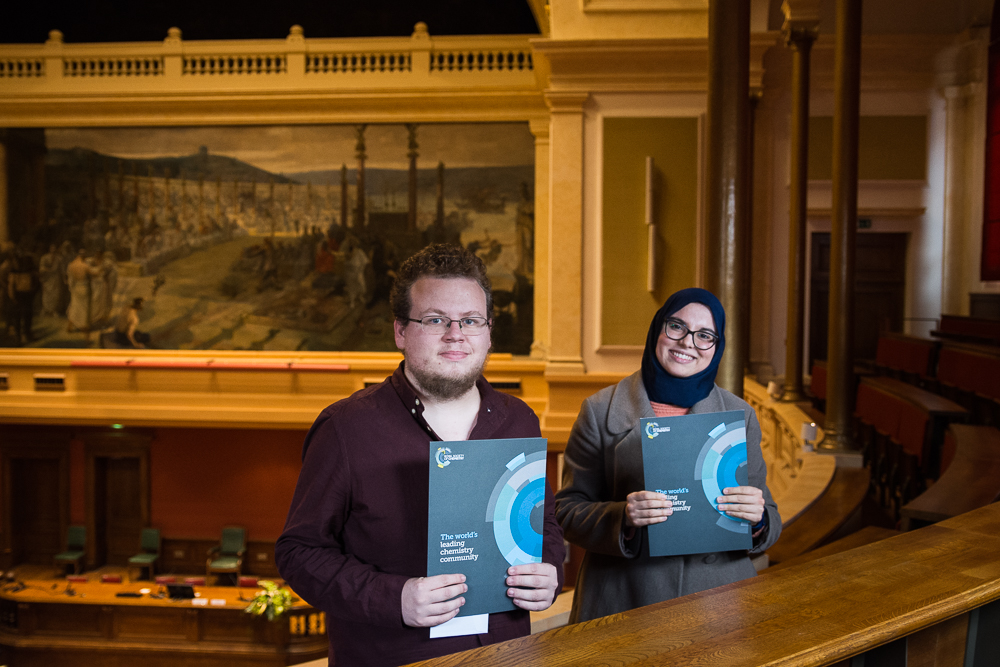











 The
The  The
The 
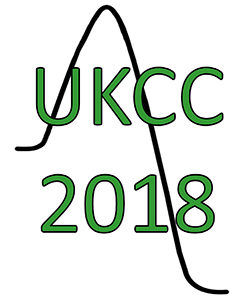
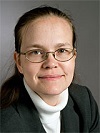


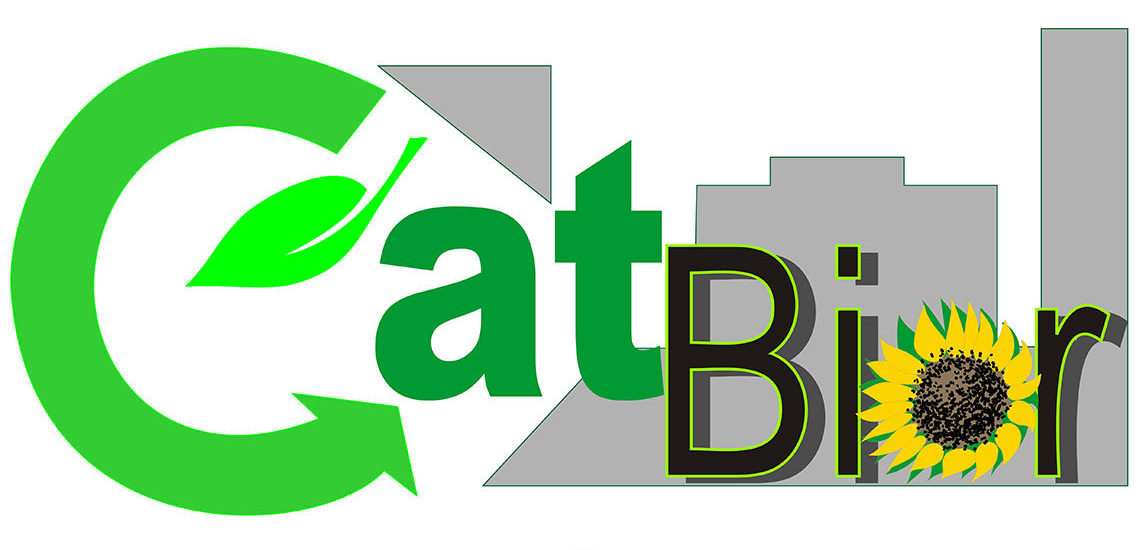 The
The 

